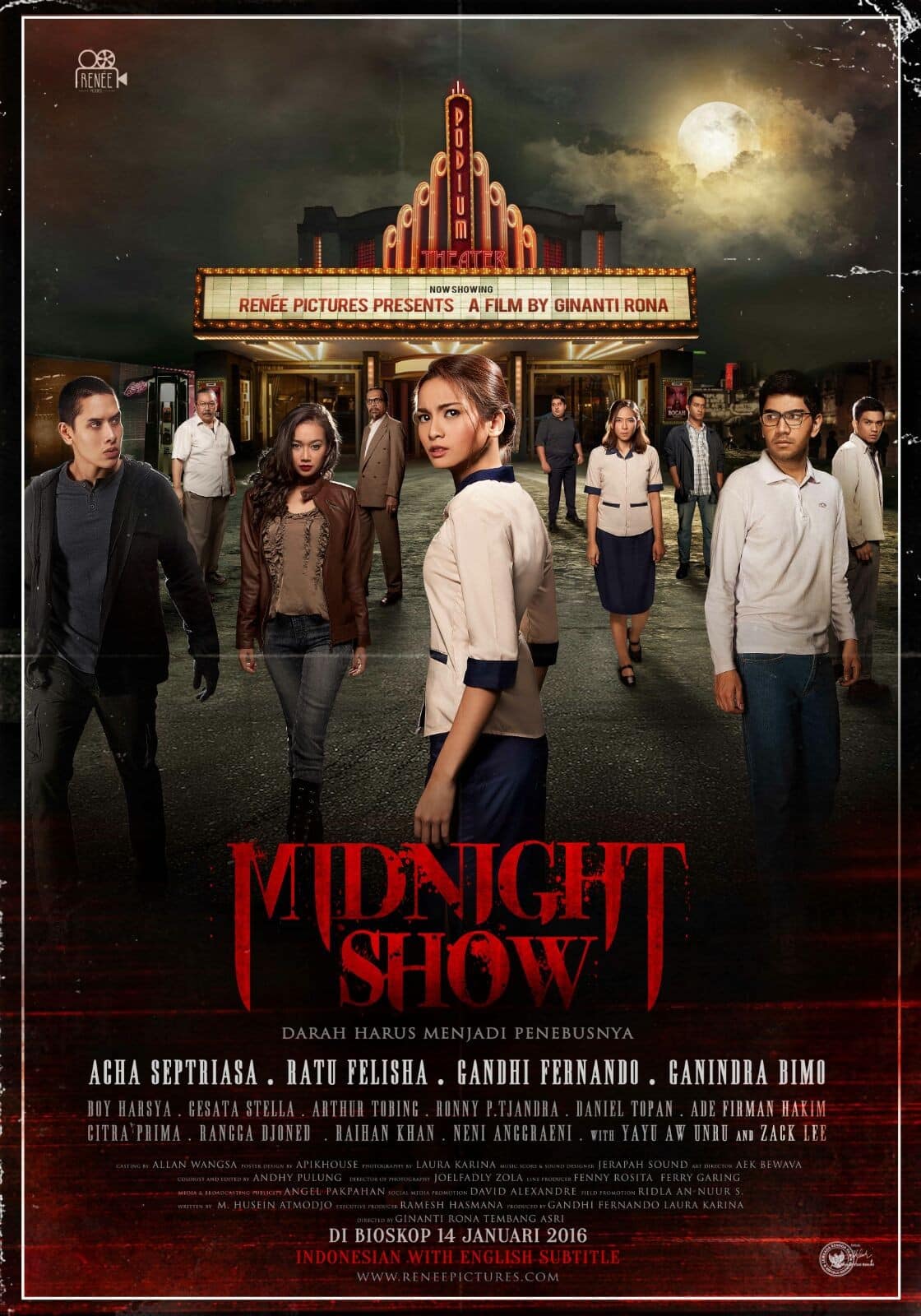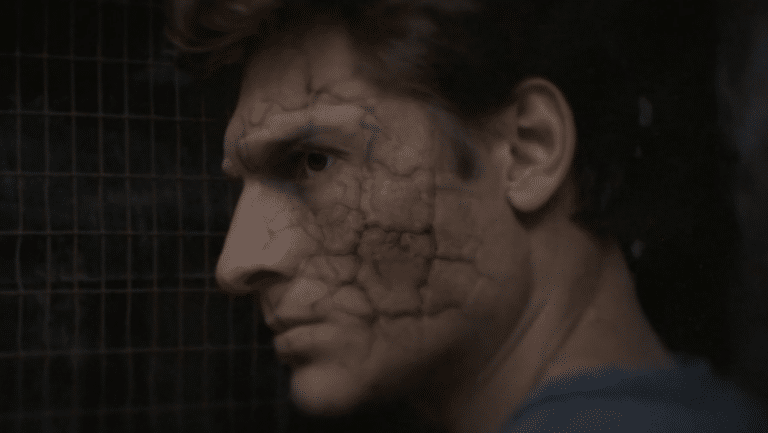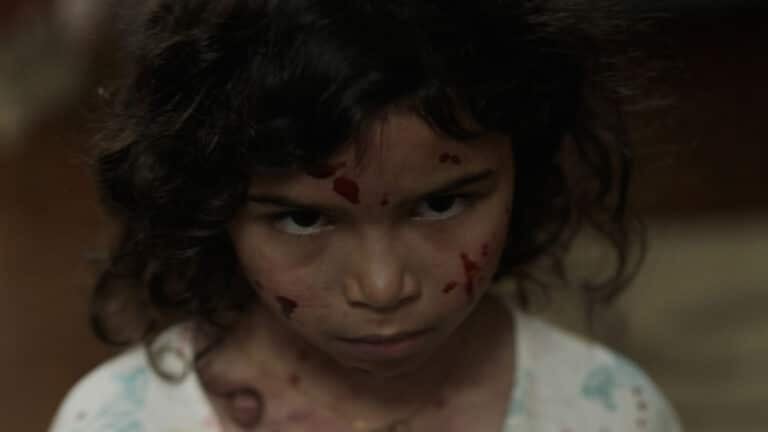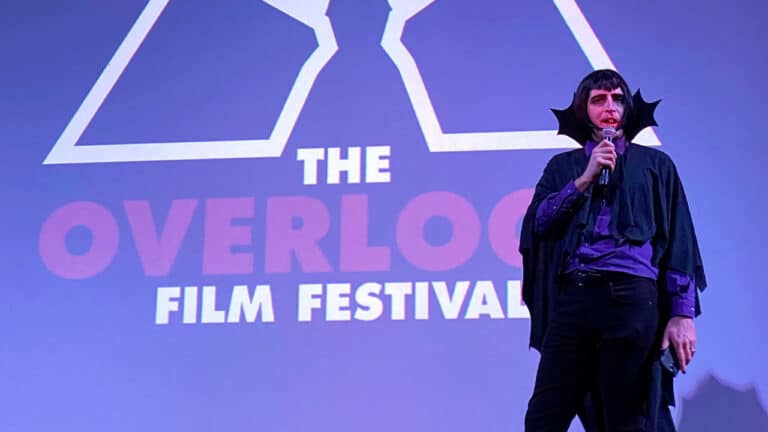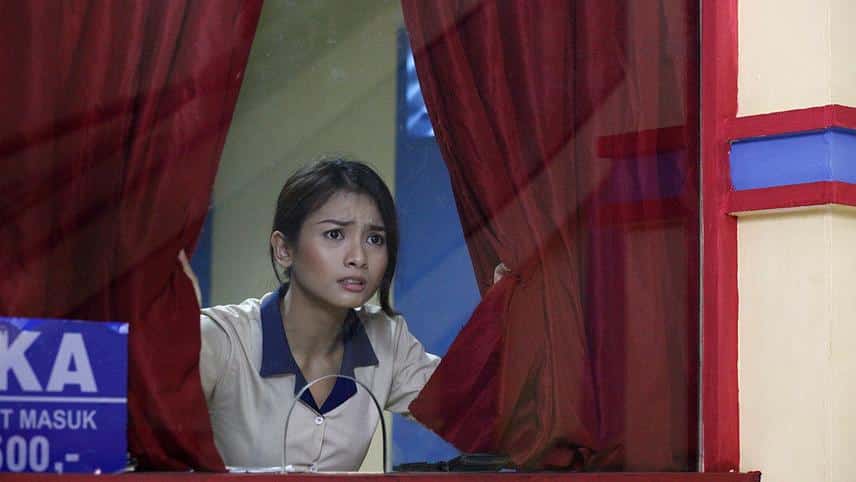
Editor’s Note: In each Wild Women with Steak Knives entry, author Alexandra Heller-Nicholas explores women directors in the horror genre, highlighting films that are largely overlooked or forgotten. Read them all here!
With more than a subtle hat-tip towards Dario Argento’s Deep Red, Ginanti Rona Tembang Asri’s 2016 horror banger Midnight Show starts with a gruesome primal scene: a young boy holds a knife and watches on as his family lies dying. But unlike Deep Red, there’s no twist – who we are seeing absolutely is the killer, and there’s no red herring reveal.
The stylish opening credit sequence further reveals this Indonesian filmmaker’s clear love of Italian horror, and if you are at this point still unconvinced, the premise of the film that follows makes it a no-brainer. Lovingly offered in the tradition of Lamberto Bava’s Demons films without ever feeling derivative or empty, Midnight Show – as the film’s title suggests – is a horror movie set in a cinema, and delights in all the metatextual playfulness that such a premise affords.
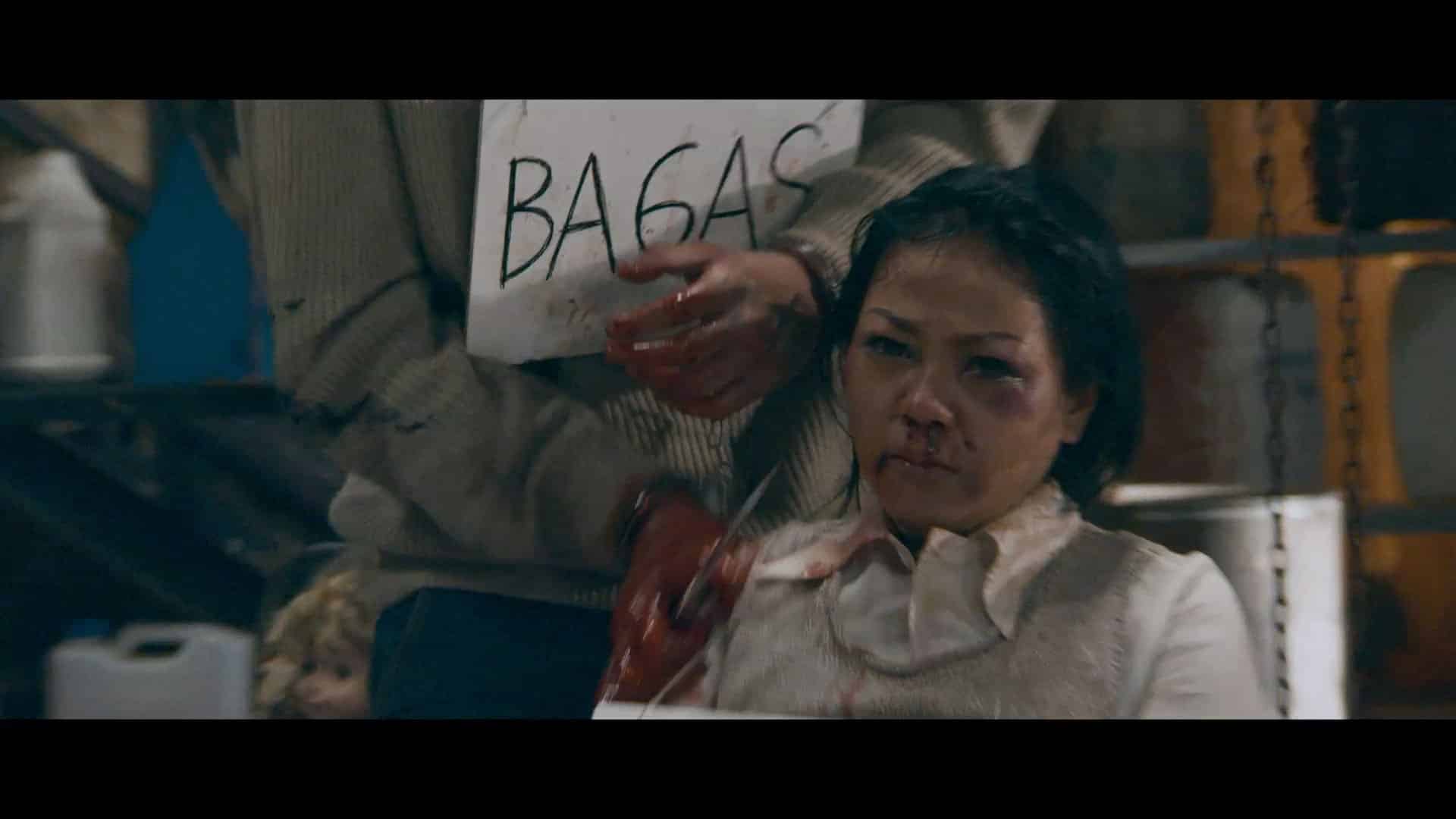
We soon discover that the film’s opening bloodbath is a flashback to a ‘real’ murder case, the story of which has been adapted to the screen in a movie called Bocah, playing at Midnight Show’s primary cinema location. It’s a slow night, and young single mother Naya (Acha) and her crush-addled colleague Juna (Ghandi Fernando) busy themselves with menial tasks to keep busy as their largely ineffectual new colleague Lusi (Gesata Stella) takes off early yet again.
Just before that evening’s late-night screening of Bocah, a surprise rush sparks a last-minute flurry of activity as a number of strange and suspicious characters descend on the cinema to catch the titular midnight show. When violence breaks out mid-screening, it appears that the real-life killer that the film is based on is there in the cinema with them, rebooting his reign of carnage as he massacres the cinema’s inhabitants one by one.

A near-perfect double bill with Maximiliano Contenti’s 2020 Uruguayan-set slasher The Last Matinee – and notably predating it by four years – Midnight Show similarly revels in its self-referentiality, using its status as a horror-movie-about-horror-movies as a canny tool to explore the very ethics of the genre and its relationship to true crime in particular. To reveal where the film goes on this front would spoil the fun; suffice it to say that this movie is clearly very conscious of these bigger questions and seeks to tackle them in a provocative, engaging way .
Since Midnight Show in 2016, Ginanti Rona Tembang Asri has gone on to direct many more feature films, including the horror movies Lukisan Ratu Kidul, Tainted Soul, Qorin, and Susuk: Kutukan Kecantikan, as well as the ongoing horror TV series Titisan which first screened in 2020. Before helming her own films, she cut her teeth on some of Indonesia’s finest genre films as assistant director on movies including Kimo Stamboel and Timo Tjahjanto’s Macabre, Gareth Evans’s The Raid: Redemption and The Raid 2 , as well as the Evans/Tjahjanto directed segment of V/H/S/2, “Safe Haven.”
As one of the shining lights of contemporary Indonesian horror, Ginanti Rona Tembang Asri shows no signs of slowing down, and Midnight Show alone is a hidden treasure just awaiting international cult film beatification.
